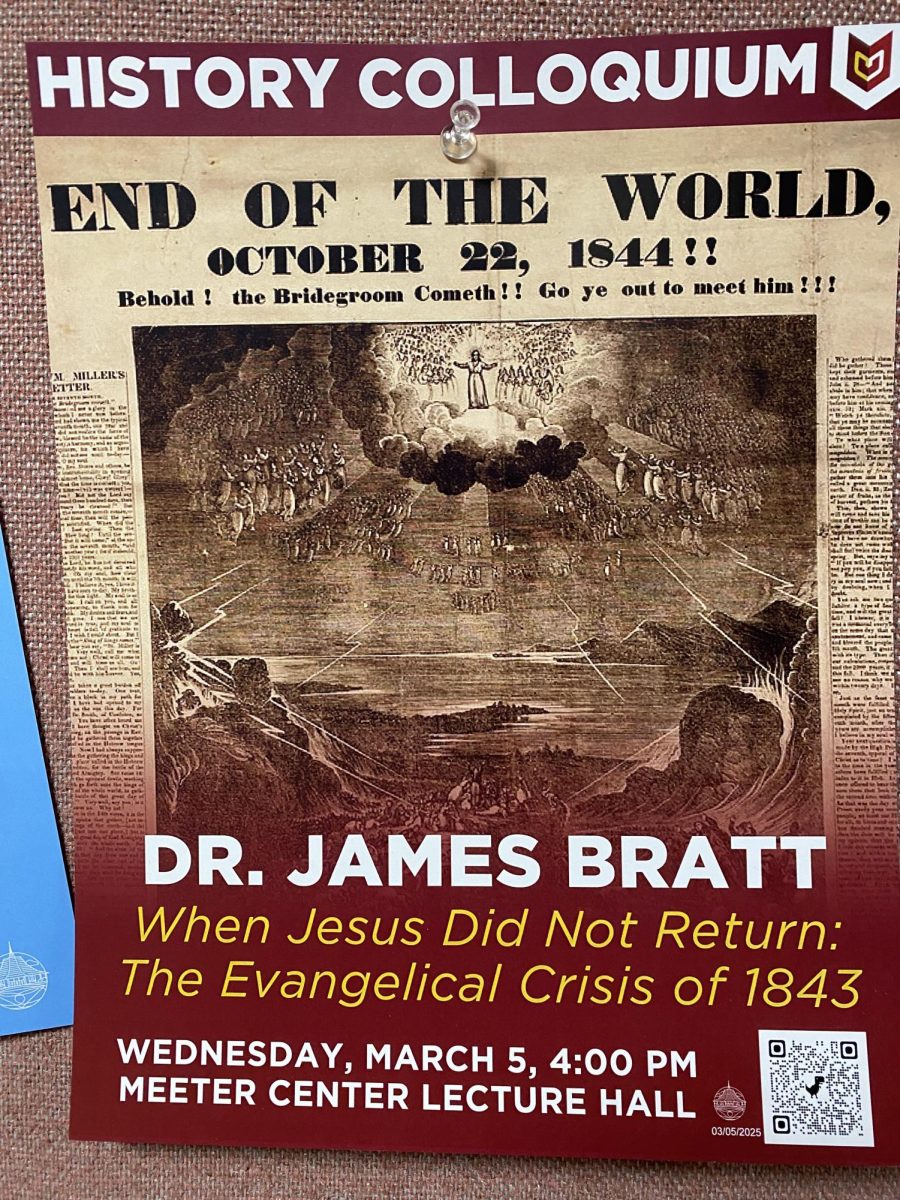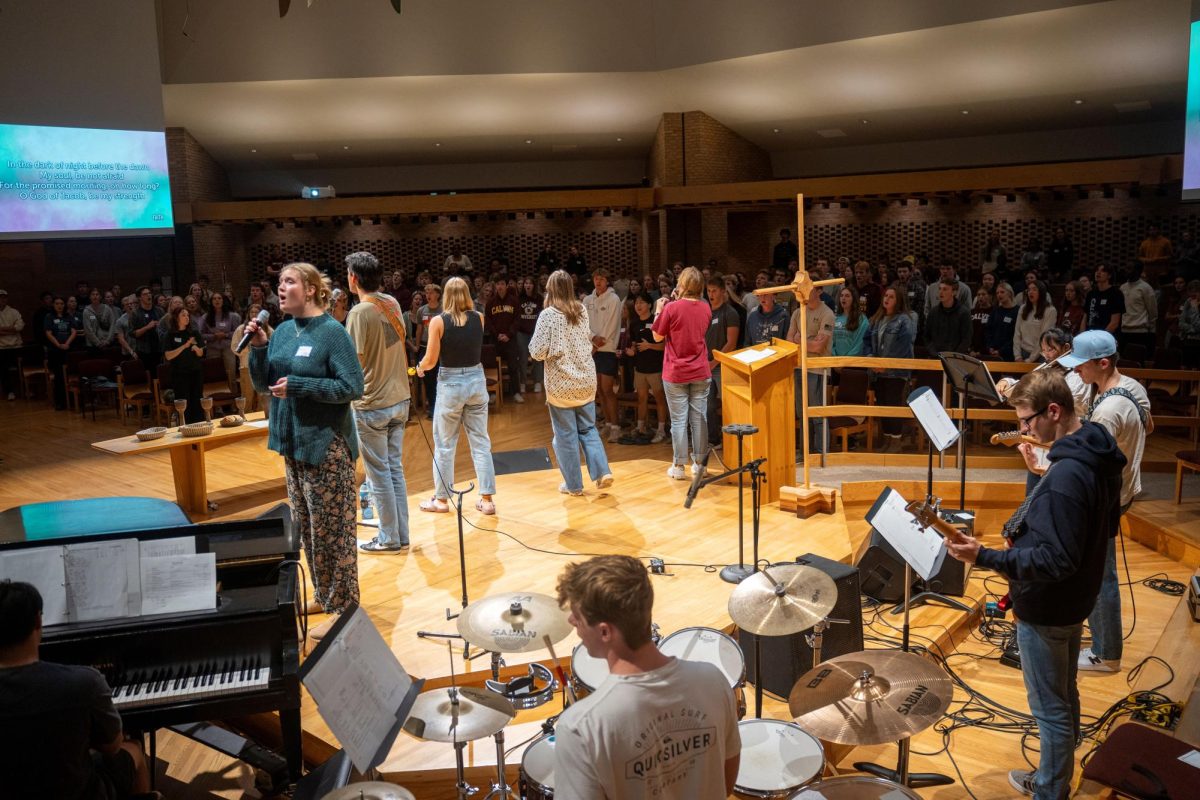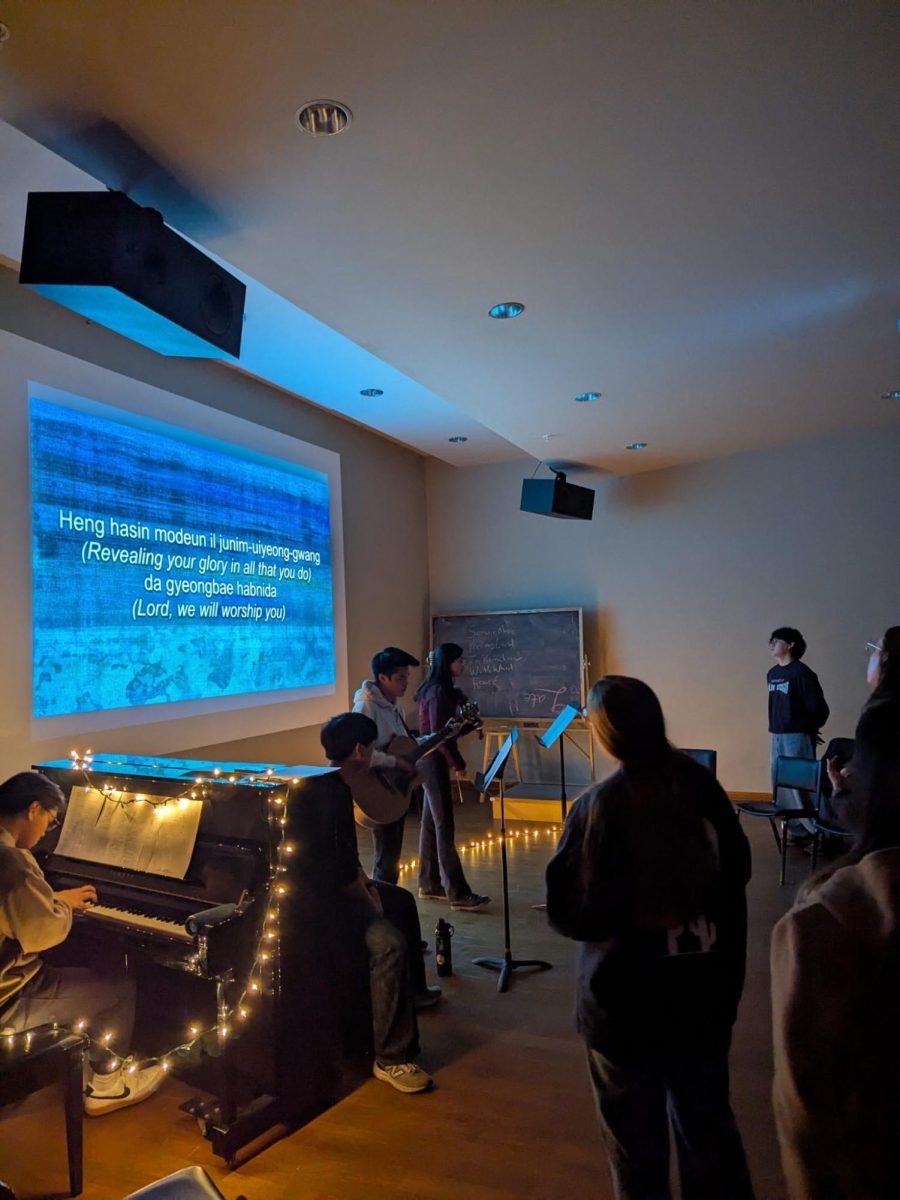Reverend Manoj Shrestha, currently a Ph.D. candidate at Princeton Theological Seminary, was invited by the Nagel Institute to speak at Calvin last Thursday about the spreading gospel in Nepal.
Shrestha, former principal of the Nepal Ebenezer Bible College, reported that Nepal has the fastest growing Christian church in the world, despite the persecution that the church of Nepal faces.
“The only reason I can think of [for the growth of the Nepali church] is the work of the Holy Spirit,” Shrestha said. He added that church planting and evangelism are the strengths of the church in Nepal.
“If you come to Nepal, you will see many similarities between the church in Nepal and the first century church as described in the Book of Acts — in the religious life of the people, how the church is being persecuted, the excitement of the believers, how the power of God is being demonstrated through healings, exorcisms,” Shrestha said.
Shrestha said that the purpose of his talk was to explain how the gospel reached “the highest point on the earth [Mount Everest in Nepal] from the lowest point on land on the earth [Dead Sea].”
“There are more temples than houses and more gods than people,” Shrestha said to help his audience understand the highly religious society of Nepal. He said that 82 percent of the Nepali population is Hindu and 3 percent of the population is Christian.
Because Nepal is historically not a Christian country, the growth of Christianity in Nepal is surprising.
“Until 1990, Nepal was a Hindu kingdom, the only Hindu kingdom in the world,” Shrestha said. “And until 1990, it was illegal for a Nepali to be a Christian. …There were many [Christian] churches, but they were all underground churches and there were many occasions where a whole church was arrested.”
Shrestha explained that in 1990, a revolution broke out in Nepal which resulted in a multi-party democracy. This meant that the king was only a ceremonial king and all the executive power went to the elected prime minister.
Consequently, the situation in Nepal is not as hostile towards Christians.
“The constitution says that [a Nepali citizen] is free to practice the religion that has been handed over by the forefathers, which means that you cannot be converted to a Christian,” Shrestha said.
Despite the establishment of a democracy, Nepali Christians still face challenges.
“All the policies in the government are against [a Christian],” Shrestha said, “and once you decide to become a Christian, you are betraying the family values, so families and society do not want their children to be Christian.”
Shrestha also highlighted weaknesses of the Nepali church.
“No matter what text you preach, the message is the same: ‘You have to preach the gospel, you have to read the Bible.’ The systematic teaching of the Scriptures is not there, and because of this,” Shrestha said, “churches in Nepal are facing huge problems as even a small issue divides the church because there is no deeper understanding of the Scriptures.”






